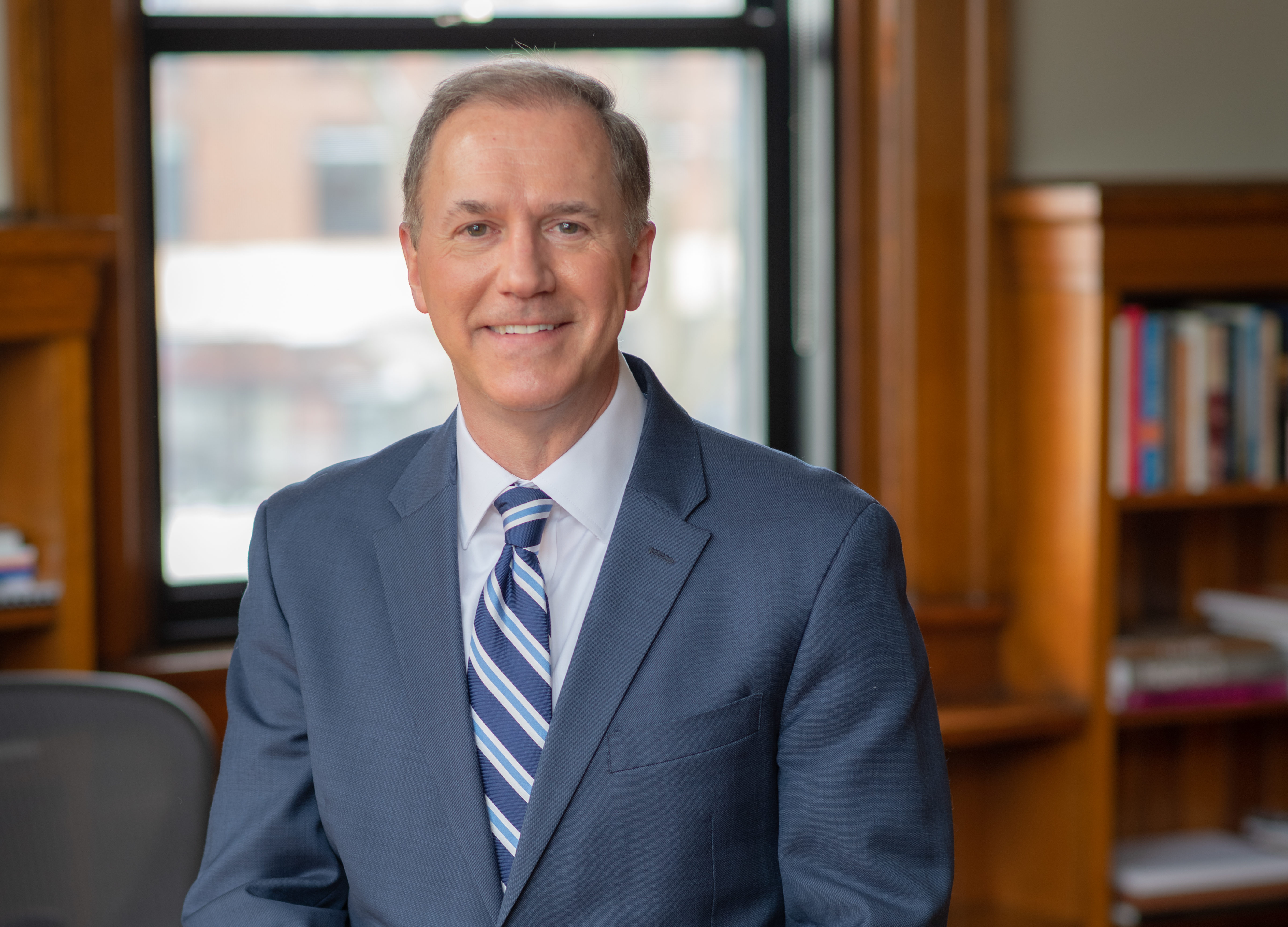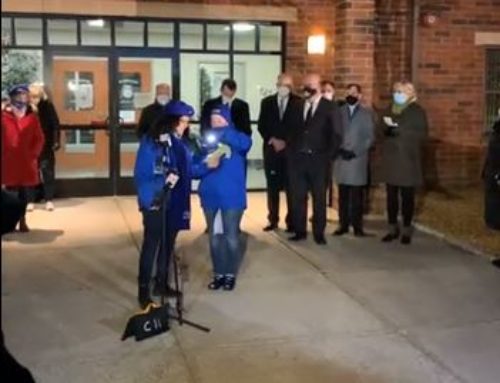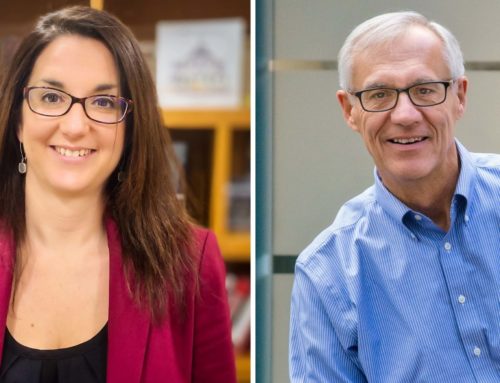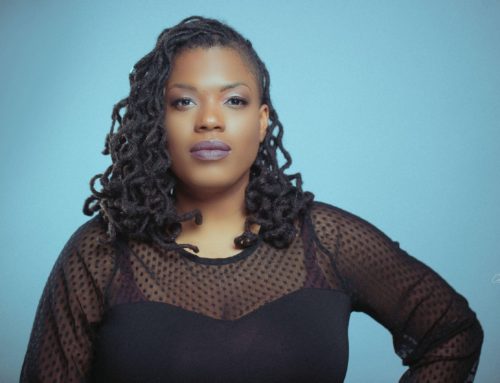David Fithian was appointed as the tenth President of his alma mater, Clark University last year. Now, in his second year leading the 134-year-old school, Fithian is looking to set the stage for the university to continue to lead within the community and beyond, both in regards to the COVID-19 pandemic and its procedures as well as with upcoming steps to promote greater equity and inclusion.
“It just feels great to see the campus alive again,” Fithian said. “There’s a lot of exciting initiatives that are coming into focus that we’re sharpening right now that we’ll announce to the campus community throughout the course of the year. I’m really optimistic. I’m excited for the future.”
Fithian, who graduated from Clark in 1987, previously served in senior leadership positions at Harvard University and the University of Chicago. He has said in previous interviews that he returned to Worcester for the community and its strengths, one of which has proven to be how the school managed its response to COVID-19.
“We learned a lot about Clark as a community,” Fithian said. “We did incredibly well, better than most schools, certainly around the country and even in Massachusetts.”
Clark University required students, faculty, and staff to be fully vaccinated for the 2021-2022 school year, with exemptions when medically pertinent. Similar to the previous school year of a every-third-day regimen for COVID-19 testing, everyone at the school is now tested once a week–twice a week for the unvaccinated.
“The biggest difference for us, and I truly believe this, is that Clark students are committed to each other,” Fithian said. “They have a real sense of shared responsibility, not just for their own health but for that of their fellow students, faculty, staff, and franky neighbors in the Main South.”
While Fithian recognizes that the students have not always been perfect with following all guidelines, he still thinks that the community has stepped up.
“I’m tremendously proud and grateful for it. I think that was the difference between getting through the semester and not,” Fithian said. “I really learned that appealing to and counting on Clark as a community to act in the best interest of the community is something that we can do.”
Fithian said that, while he was a student at Clark 30 years ago, he still knew of the sense of responsibility within the community. He mentioned a sense of appreciation and empathy of others, even when issues might affect a student’s friend but not themselves directly.
“We know that Clark students lean into social justice issues. They lean into hope and morality,” Fithian said. “This directly relates to how one responds to a social crisis.”
Now, over the past few weeks, Fithian said that he senses all of that optimism within the community, especially as students–both new and returning–moved in.
“It’s always a highlight of the year…Having just gone through that a second time, with a little bit more freedom and to interact more than last year, it was excellent,” Fithian said. “I think students are so happy to be back in the classroom.”
Around 86 percent of students returned last year, according to Fithian, but only 50 percent of classes were in person. This meant that even if students were on campus, they weren’t dining together or seeing others that weren’t part of their normal activities.
“There’s a real sense this year of okay,” Fithian said. “While it isn’t exactly normal, it’s so much closer to it than anything we saw last year.”
Masks are still required indoors, but Fithian mentioned that he hopes for that to not be the case by the end of the school year.
“It looks like we might have hit the peak with the Delta variant, which is similar to what we’ve seen in other countries,” Fithian said. “It looks like it could be on the downward slope…If that’s the case, and if the campus testing numbers continue favorable, we will remove the mask mandate for indoors.”
Students have been able to still host club fairs and activities as well as go to classes and hang out with friends so far this academic year. Fithian said that he thinks this is important for all of the student body, but particularly the first years and graduating class.
This also allows Fithian to continue to position Clark to “come out from under the COVID cloud very strong,” he said, noting that this is mostly around strategic planning for the future.
Fithian created the position and hired a Vice President for Planning and Strategic Initiatives. David Chearo, who holds the position, is in charge of gathering data and assessing information, such as physical plant conditions and enrollment, to plan for the future. Fithian wants to specifically focus on academic excellence, campus experience, identity and culture, outward engagement, and institutional capacity.
“They’re meant to be a bit of scaffolding or architecture that we’re calling the strategic framework,” Fithian said. “It’s not a single plan…It’s allowed us to develop a number of themes and from those themes develop a specific type of initiatives that hang on them.”
He added that the different focuses are all interconnected. For example, there cannot be academic excellence in the science department without high quality laboratories. Students also cannot succeed if they are living in dormitories without air conditioning when it’s 90 degrees outside, Fithian said.
“It’s really about not just continuing our investment and relationship with Main South but embracing Worcester, embracing the region, and frankly embracing the world,” Fithian said. “I want to increase our visibility, recognition, and awareness.”






Leave A Comment